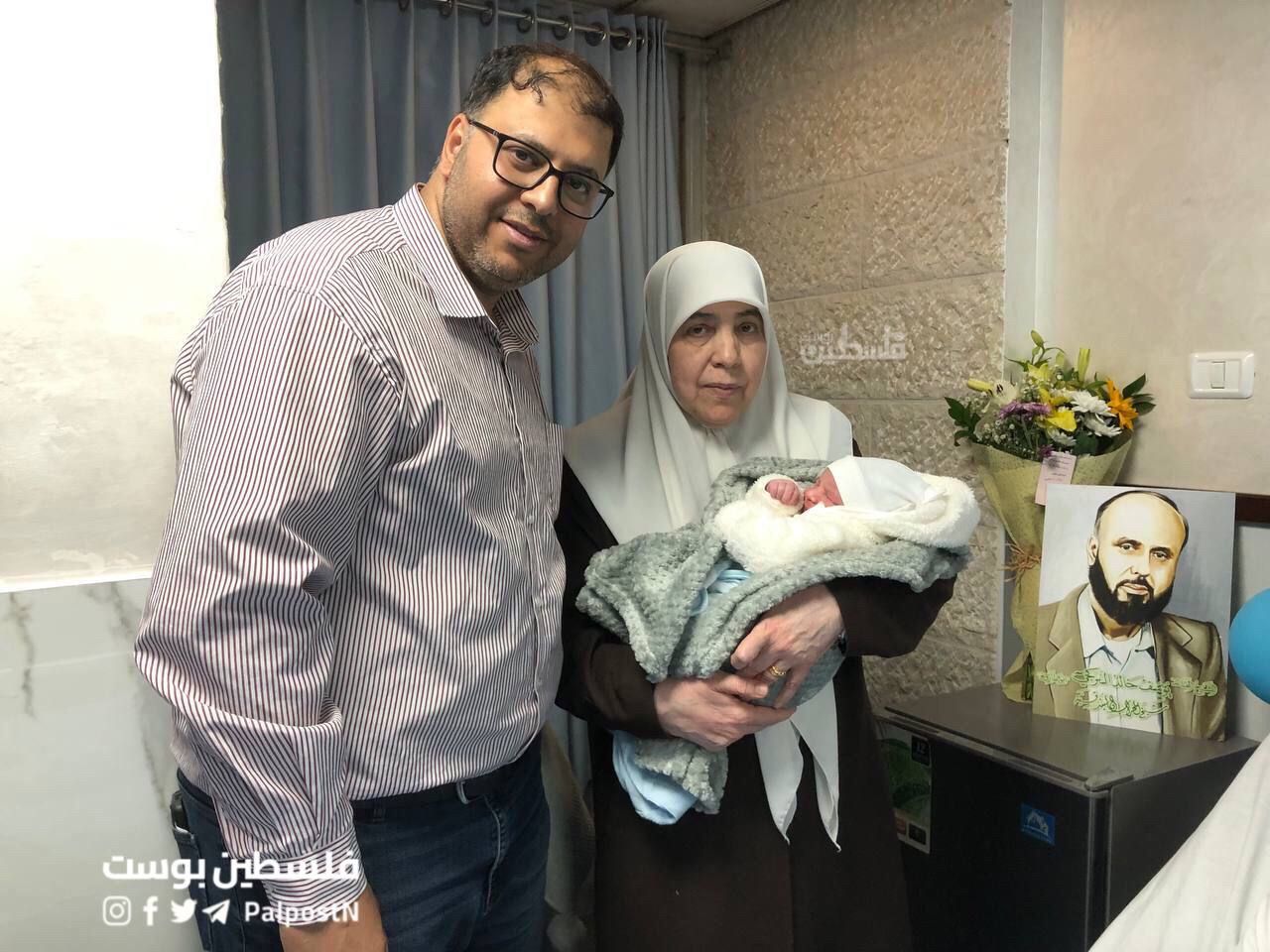A Palestinian journalist had to give birth under house arrest
A PALESTINIAN journalist in Nablus in the occupied West Bank, Somaya Jawabram, was detained by occupying Israeli forces in November. The Coalition For Women In Journalism reports that she was released after eight days and placed under house arrest. She gave birth, still under house arrest, on 22 January.

With the newborn - still under house arrest
The charges levied against her centre on alleged "misuse of social media" - posting in support of Palestinian resistance. Not only is this a contentious accusation, raising questions about freedom of speech - but the Israeli authorities are not even supposed to have the right to make such arrests.
Naela Khalil, a fellow journalist and member of the independent Palestinian journalists' collective, reports that any investigation of such offences should be carried out by the Palestinian Authority (PA), not by the state of Israel, under the Oslo Accords of 1993 and 1995. These give the PA limited control of areas such as Nablus, including policing. Khalil therefore raised concerns that the arrest could open the door to more illegal action against journalists in the West Bank.
The Freelance interviewed Somaya's husband Tarek Sukraji - Somaya herself is, under the terms of her house arrest, not allowed to take phone calls or to communicate via social media. He confirmed the challenging circumstances his wife has faced, confined to house arrest during childbirth and the the critical phase leading up to it.
Surakji expressed surprise at the lack of substantial support for Somaya from journalistic bodies. He emphasised that aside from a nominal sum of 80 shekels provided by the Palestinian Journalists Syndicate for a single medical clinic visit post-release, there has been a glaring absence of support. While Somaya remains under home arrest the family has shouldered the financial burden.
Expressing disappointment at conversations with purportedly supportive organisations, the family has chosen to discontinue engagement. Somaya's husband fervently appealed to such organisations to stop exploiting his wife's situation for "hollow sympathy". He stressed that the family is already overwhelmed.
This case, I conclude, underscores the absence of substantive backing for journalists in distressing situations, and the need for a re-evaluation of the support extended in such circumstances.
![[Freelance]](../gif/fl3H.png)
